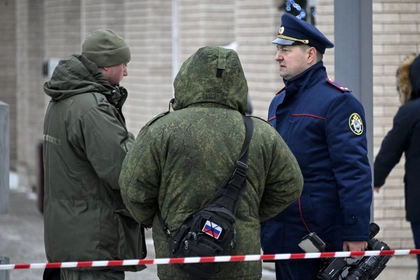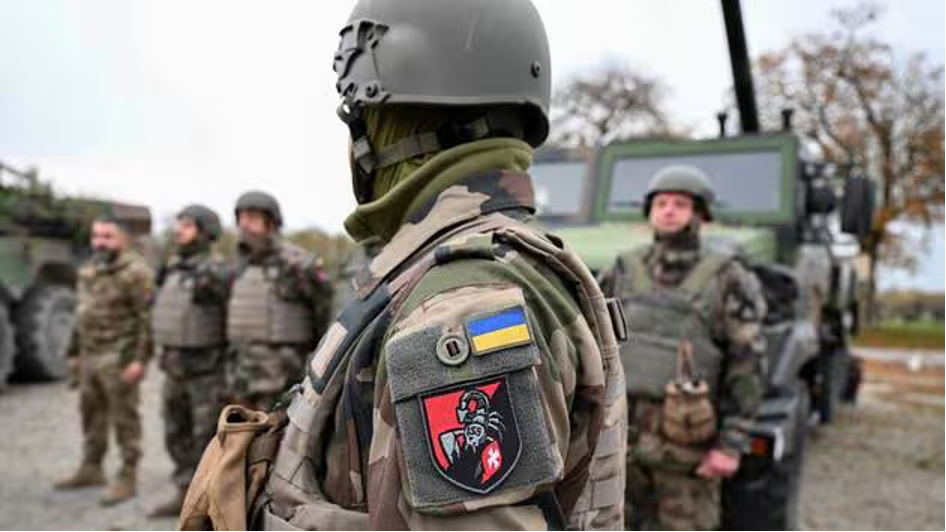As Russia intensified its air, land and sea operations along south-eastern Ukraine during July, it must have increased Brussels’ awareness of the growing security threats along the Romania-Ukraine border, but they failed to deter Russian military strikes only 200 meters from the territory of a NATO nation.
On Monday, July 24 Russia launched a wave of kamikaze drone strikes against freight-handling facilities in the Ukrainian Danube River port cities of Izmail, Reni and Kali. This blasted holes in silos, set tons of stored grain on fire and ruined port equipment.
- Get the freshest Ukraine news updates as of today.
- Read the most current Ukraine news stories for today.
JOIN US ON TELEGRAM
Follow our coverage of the war on the @Kyivpost_official.
The resulting explosions and flying metal injured several people and damaged grain storage equipment, according to a statement from Ukraine's Southern Operational Command.
The drone raid marked the first time in Russia’s seventeen-month-old war on Ukraine that the Kremlin attacked Ukrainian riverine ports, in an expansion and escalation of the continuing missile and drone bombardment against the major Ukrainian port city Odesa, on the Black Sea which has been in progress for months. The three Danube ports had, until the Russian strikes, been the only routes by which Ukraine was still able to export grain by sea.
Romanian President Klaus Iohannis in a July 24 statement condemned the Russian military's attacks on Ukraine's Danube ports, calling it an “escalation.”
Images of one Russian Shahed drone diving onto Izmail port and exploding in a massive orange flame, filmed from a vantage point on the Romanian side of the Danube, were widely shared on Russian, Ukrainian and Romanian social media.

Ukraine Must Join the Joint Expeditionary Force, and the UK Should Lead the Way
Thirty-six hours after the attacks, there appeared to be little immediate NATO response. International flight tracking platforms reported that an American AH-64E Apache helicopter gunship with the callsign “Hunt32” flew into eastern Romanian air space some 30 kilometers from the Ukrainian border and port city of Reni, hours after the Russian strike.
Long-range NATO reconnaissance aircraft routinely fly in proximity to the Ukrainian border, and over international waters in the Black Sea. Those flights seemed to continue their normal routines, Kyiv Post research has shown. Sorties by NATO combat aircraft near Ukrainian sites hit by Russian bombardment are extremely rare.
The highest profile recent NATO operation near Ukraine was Exercise Poseidon 2023 which ran from July 14-21 in the western Black Sea. The exercise, which is an annual event hosted on alternate years by Romania and Bulgaria, practiced joint naval training in sea mine detection and sweeping. This year’s involved military personnel from Belgium, Bulgaria, France, Greece, Italy, Romania, Turkey, the UK and the US. The Russian attacks on Ukraine’s river ports came four days after the NATO exercise ended.
According to Romanian news reports, the 2023 event tested the Romanian navy frigate Regina Maria for inclusion into a standing naval element called the NATO Reaction Force, with specific mine clearing and unexploded ordnance disposal missions.
Images broadcast on Romania’s Dogrogea TV channel showed Romanian scuba divers marking training mines, Puma helicopters flying patrol and search and rescue missions, while US and other NATO warships maneuvered with their Romanian counterparts in waters off the Black Sea coast, near the port city of Constanza.
Romanian navy vice admiral Cornel-Eugen Cojcocaru said a key mission for NATO forces along Romania’s Black Sea littoral was ensuring freedom of navigation to commercial shipping in comments to Dogrogea.
Nicole Creţu, commander of a major NATO air operations hub at the 57th Air Base Mihail Kogălniceanu, said the airfield already was hosting dozens of US military-operated aircraft including AH-64 Apache attack helicopters, UH-60 and CH-47 cargo helicopters, and surveillance aircraft in a June interview with Radio Romania Actualității. Reinforcements from other NATO states to participate in the Atlantic Alliance’s Enhanced Air Police mission were en route to Kogălniceanu, he said, and “soon” the base would become home for a squadron of Romanian F-16 fighter aircraft purchased from Norway.
Romania’s Digi news platform reported on July 17 citing, US sources, that Bucharest will also receive upgrades to an Aegis Ashore anti-aircraft missile system currently deployed near the east Romanian city of Deveselu. The weapon, developed by the US Navy, contains a target acquisition and tracking radar and 24 interceptor missiles. Its mission is to protect NATO air space from threats to the east and south.
A powerful French SAMP-T air defense system is currently operating on rotation at Capul Midia air base in eastern Romania, the military news magazine Defense Romania reported. A France-led NATO battle group in Romania is supported by and regularly trains with the French and Romanian air forces flying Rafale, Eurofighter Typhoon and F-16 fighters, the report said.
The wave of kamikaze drones came on the heels of a Kremlin mid-July rejection of a grain transfer deal which allowed some Ukrainian ships to carry foodstuffs through the Russian naval blockade of Ukraine’s ports, in exchange for Ankara’s permission to ship Russian-produced grain and fertilizers through the Bosphorus, as an exception to international sanctions on Russia.
Global wheat prices rose by around 5.5 percent by Monday evening and another 2.6 by Tuesday morning.
According to Reuters news agency report on Tuesday, which cited international shipping market data analysts MarineTraffic, 29 cargo ships had dropped anchor near Ukraine’s crucial Izmail port terminal, and 3 were similarly stationed off the Danube River port of Reni.
Owner concerns over cargo and ship insurance were a possible reason for the halting of the traffic, but it wasn’t fully clear why the ships weren’t entering the ports, the report said.
You can also highlight the text and press Ctrl + Enter






